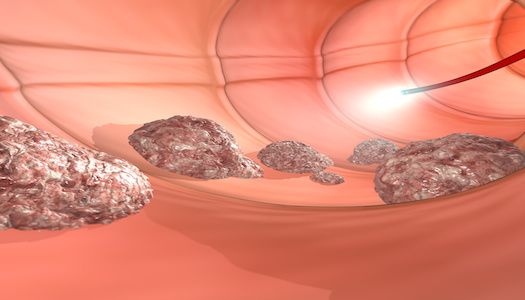Article
Don't Count Elderly Patients Out as FMT Donors
Author(s):
Key Takeaways
- Donor age does not affect the clinical efficacy of FMT in treating recurrent C. difficile infections.
- Microbial composition varies with age, showing reduced actinobacteria and bifidobacteriaceae in donors over 60.
Age doesn't appear to impact FMT as long as donors are healthy.

Changes to overall microbial diversity in older, healthy fecal microbiota transplant (FMT) donors don’t appear to affect the clinical efficacy of the procedure.
Researchers from Johns Hopkins University observed 28 healthy FMT donors 20 to 82 years to investigate the effects of age of healthy donors on their fecal microbiota. The researchers wanted to examine the impact of these changes on the clinical efficacy of FMT.
On the morning of the scheduled FMT (between January 2011 and October 2014), the donors submitted a stool sample for the respective recurrent Clostridium difficile (C. difficile) infection patients. The researchers split up the samples into groups based on the donors’ ages, older than or younger than 60 years.
The researchers reported that all the recurrent C. difficile infection patients had successful FMT procedures, resulting in negative C. difficile fecal test in four to 12 weeks following FMT. The researchers did not find any significant differences in the age of healthy donors and their respective patients in either age group.
Follow-up for each FMT recipient was at least 12 months, though many were followed for much longer. None of the patients had any recurrent C. difficile infection.
“The age gap between the donors and recipients in our study did not have any effect on the clinical outcome of FMT,” the study authors wrote. “Furthermore, the long-term follow-up indicated that there was no recurrence of C. difficile infection in either group over 12 months.”
The researchers determined that actinobacteria was significantly less abundant in the group of stool samples from donors older than 60 years compared to the levels from the donors less than 60 years.
Veillonellaceae abundance was also lower in donor samples from the over 60 group compared to the under 60 group. The presence of bifidobacteriaceae was also lower in the group aged over 60 compared to the group aged less than 60 years. Additionally, the investigators found that the bifidobacteriaceae diversity decreased with age: Bifidobacterium bifidum and Bifidobacterium adolescentis were less abundant in the greater than age 60 group compared to the less than age 60 years group.
Catabacteriaceae — which belongs to the phylum firmicutes and class Clostridia – was found to be more abundant in the older group, those donors above 60 years, the researchers discovered. The ratio of firmicutes to bacteroides was not statistically different between the groups of patients older or less than 60 years, the researchers added.
The researchers speculated that factors such as dietary preferences, nationality, and advancing age could all contribute to changes in the fecal microbiota composition in elderly patients. But, the age dependent decrease in Bifidobacterium abundance and adherence to intestinal mucosa could play a role in enhancing the risk of C. difficile infection in the population.
The authors did acknowledge that arbitrarily selected 60 years as a cutoff age for FMT donors “should not be an exclusion criteria for screening donors for FMT and decal samples from elderly donors can be used for FMT for recurrent C. difficile infection patients”. They added, further studies with more diverse cohorts, such as from African American and Hispanic communities, are needed to examine the efficacy of samples from elderly patients in those communities.
The report, “Effect of Aging on the Composition of Fecal Microbiota in Donors for FMT and Its Impact on Clinical Outcomes,” was published in the journal Digestive Diseases and Sciences.
Related Coverage:
What Types of Patients Will Accept FMT as C. difficile Treatment?
C. difficile Treatment: Targeted Therapy is Key
Significant Costs Linked to Pediatric C. difficile Infection





